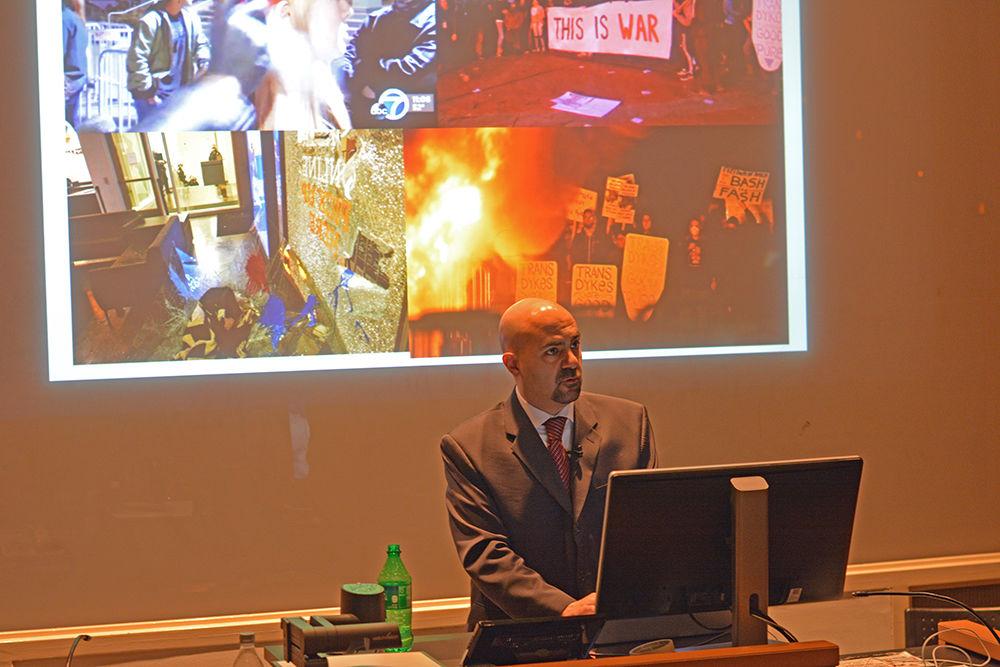Robert Shibley, executive director for the Foundation of Individual Rights in Education (FIRE), spoke in Poe Hall on Wednesday evening, discussing perceived threats to free speech at NC State and the proposed UNC-System free speech policy.
“I’m sure you’re all familiar with the free speech debates that are going on right now on college campuses,” Shibley said.
FIRE is a nonprofit started in 1999 that focuses on civil liberties in academia. With no stated political affiliation, the group has often been critical of university administrators that, in its view, violated free speech or due process rights of college and university students.
Since 2008, one of the main functions at FIRE has been a rating of university written speech codes and grading policies that prohibit free expression. Per the FIRE database, NC State currently holds a “yellow light” rating, as is the case with most North Carolina schools, meaning the university has policies that “restrict a more limited amount of protected expression.”
Wake Forest and Davidson College are the only two “red lights” in the state.
“NC State is starting to be sort of an outlier because NC State still has some speech codes on the books,” Shibley said. “UNC and Duke are already green, so they’re already ahead of you guys.”
Per Shibley, NC State’s rating comes as a result of Regulation 11.55.02, which related to outdoor assemblies and public addresses, however this policy was revised on June 27.
“The policy was updated and came into play at the end of June, so I think we’ve addressed some of the concerns that the speaker has made,” said Justine Hollingshead, assistant vice chancellor and chief of staff at the Division of Academic and Student Affairs.
According to the new policy, outside groups, which were not permitted to hold outdoor assemblies and public addresses without sponsorship from a university or student group, now have the lowest priority in their application for reservation of a public space.
The highest priority is given to groups, speakers or events, “Consistent with the University’s mission, academic classes, research, and extension activities will have the highest priority for the use of University space.”
Shibley also spoke about House Bill 527, North Carolina legislation that passed in July, which was praised by FIRE for “helping better protect student and faculty expression.”
The free speech policy currently being discussed by the North Carolina Board of Governors that came as a result of this bill would set out a range of punishments for individuals who “substantially disrupts” the functioning of an institution or “substantially interferes” with the free expression of others on UNC-System campuses.
According to Shibley, this policy would most likely move NC State into the “green light” category.
“Universities are under pressure from legislators to do something about things like Berkley,” Shibley said, referring to violent clashes that resulted from Milo Yiannopoulos being scheduled to speak at the University of California in September.
Student Body President Jackie Gonzalez, a fourth-year studying political science, has expressed skepticism towards the policy, and called it a “potential hindrance of students’ rights.”
Mary Stuart Sloan, a third-year studying political science and business administration, and president of Turning Point USA at NC State, says that she approves of the proposed free speech policy.
“As president of a club on campus that promotes free speech, I think that free speech codes should be eliminated, and we should move towards a green light policy as described,” Sloan said.
The policy recently passed in committee, and will be discussed by the full board in December.








